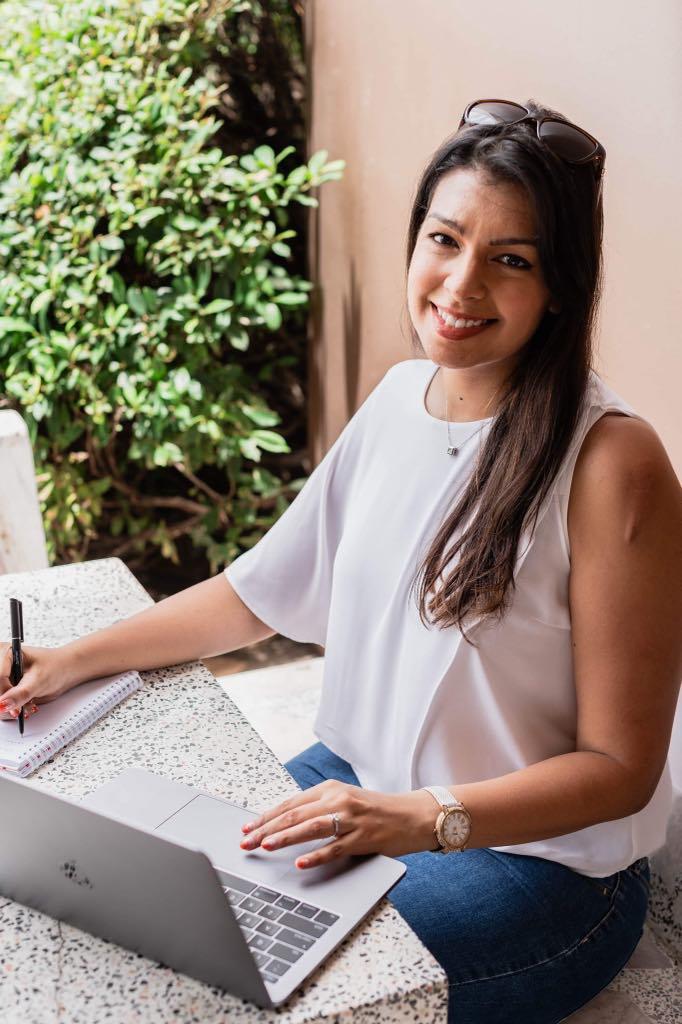How To Start Blogging and Lessons Learned From The First Year
If you’re thinking about starting a blog but hesitating, then you have to read this post on how to start blogging and the interesting lessons learned after my first year because I am writing this from a beginner’s perspective.
I’ve been blogging regularly for almost a year now. As I write these words I honestly feel a funny mix of thoughts — “Wow, I made it to my one year mark” but also “Why did I wait so long?”.
For many years I wanted to start a blog, but I was too scared to take the first step. I want to share how I finally overcame my fears and got the courage to start this blog.
Table of Contents
Building the courage to start blogging
Before I decided to commit to blogging, I read articles with titles like “How to run a successful blog” and while this kind of content always reignited my desire to have a blog, it never pushed me to do it because I didn’t find the tips helpful as a novice blogger. I needed courage and motivation not to be afraid to share my thoughts and experiences online.
The first thing to do is a brain dump of all your ideas. Get a piece of paper and a clear mind and let your ideas flow. Don’t force any structure at this point. Do this a few times and you will find common ideas and themes that pop up or excite you. Start to focus on these ideas and flesh them out. Think about a few different related topics and possible ideas for your content. The key is to have your own unique perspective because that is what will set you apart.
As the famous quote goes “The first step is always the hardest” and it is. But once you publish the first blog post, the next one becomes a little easier, and so on.
Blogging can be serious business — show up with a professional mindset
I say this because creating content (writing, editing, taking photos, creating visuals, etc.) is time-consuming and you don’t want that effort to go to waste. Furthermore, if your blog is successful, there are opportunities to monetize and grow it. So, show up with a professional mindset and ensure you remain consistent and strategic with the blog.
Tips on how to start blogging
Get your own domain and hosting
Don’t start a blog using a free blogging platform like Blogger, Blogspot or WordPress (more on WordPress below). The reason is that eventually if your blog grows, you want all the content to be searchable on Google (I’ll come back to this) and you don’t want the hassle of moving content later. It’s also good for branding to have a custom domain. So, as you can see, my blog is a custom domain using my full name and not ankitasodhia.wordpress.com or ankitasodhia.blogspot.com.
Use WordPress for content management
While you won’t use WordPress for your blogging domain, it is a very powerful tool as a content management system. To make it simple, you can set up WordPress as the backend system for your blog to write and publish content. You can also use WordPress to buy themes (aka website templates) to use for your blog (like I did with mine). WordPress is a very powerful tool, so I highly recommend to watch tutorials on how to use it.
Learn about SEO and how to make your content visible on search engines like Google
Notice how I haven’t even approached the topic of actually creating content because I think it’s very important to have a solid foundation and set up the blog properly. So, here’s when things can get a little confusing, but trust me, it’s the most important part of blogging.
SEO (search engine optimization) is the process of ensuring that your content is ‘searchable’ on search engines. To do this, there are many strategies such as ensuring you have certain keywords in your content; writing high-quality, unique content; and designing it in a way that is easy for search engines to understand (i.e. headings, paragraphs, images, etc). There are various tools and plugins to help with this. I like Yoast SEO to check my content is SEO-friendly and SEMRush to do keyword research (the process of finding what keywords people are searching for).
Bottomline: if you need to think about SEO so that your content shows up on search engines. Otherwise, it’s just floating around the internet and no one will find it. All your effort to create content essentially goes to waste.
Connect your blog to Google Analytics
Google Analytics is a tool that tracks how users interact with websites. It provides all sorts of interesting data like how many clicks a certain page/post gets; where are users coming from — social media or Google search; where in the world your audience is; how long are they staying on the website.
This kind of data is valuable because it will help you make better decisions about what type of content to create and help grow your blog. Remember when I said to show up with a professional mindset when it comes to blogging, this is one of the reasons why.
Create a content strategy to start off with, but be aware it will keep evolving
Think about what kind of content you want to create. What topics excite you? Use an SEO tool like SEMRUsh, Ahrefs, or Keysearch to see if users are searching on your topics. This helps you make more informed decisions about your content strategy.
My recommendation is to have 3-4 key topics or areas in which you want to create content. Start by creating content under each topic and then use your data analytics to fine-tune a content strategy.
For example, I started off blogging with a focus on motherhood and skincare, and my data showed that the skincare content was performing better — it’s what my audience was coming to the blog for. So, I made a slight tweak in my content strategy to focus more on skincare vs motherhood. I added some beauty and makeup content as a related topic to skincare because I know my audience could also be interested in it.
Don’t forget about the visual side of things too: images are important in storytelling and to keep readers interested. Think about how you will source images: from a photo stock website, create your own visuals, or take your own photos?
Your content strategy will keep evolving as you create more content and learn more about your audience through analytics.
Create a content calendar
A content calendar is a visual calendar of when you plan to publish content. You decide the pace: once a week, every two weeks, once a month. Whatever you choose to do — be consistent. As you start to grow an audience they will be looking for your content and you don’t want to disappoint them. Imagine, if your favorite magazine doesn’t publish an issue for a month or two, how would you feel? The same goes for a blog. Again, the professional mindset really matters, if you want to have a successful blog in the future.
Final thoughts on how to start blogging
I think starting a blog is a pretty serious thing. That’s why my advice is very specific and focused on having the right foundation. Here are some final thoughts on how to keep the momentum going once you do start:
Don’t compare yourself with other bloggers: remember everyone has a Day 1 when they had zero readers and 1 published post. You have your path. Stick to it and the success follows.
Focus on finding your point of view: What makes your content stand out? It can take a while to figure this out, but keep it at the back of your mind because your unique POV is what readers will come back for.
Use social media to promote content: Social media is a good way to promote your content, new or old, and stay connected with your audience. Research on how social media can help your blog.
People online are so much kinder than you think: It’s natural to worry about what others think about your content. But people online, especially your audience, will be kind and supportive. They will give you the confidence to keep going 🙂



Thanks for sharing your very honest summary of the first year of your blog. I totally agree with your point about not thinking too much about what others say. Firstly, there will always people who criticise. And secondly, as you mentioned, there is so much more positive feedback than we may think. Glad you joined the world of blogging, I really enjoy reading your articles!
Thank you so much for always reading and commenting! I don’t think I would have had the courage to do it if it weren’t for our little chats early on last year — so thank you for the positive feedback and encouragement. I’m very glad I joined too 🙂